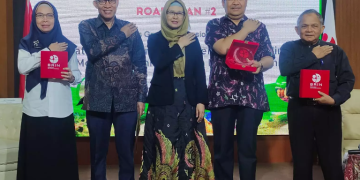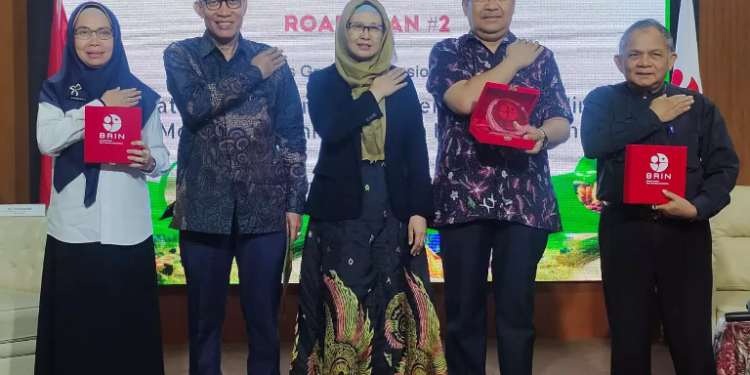#Agriculture #ElNino #ClimateChange #SustainableFarming #AgriculturalInnovation #ResearchandDevelopment #ClimateSmartAgriculture
The Impact of El Nino on Agriculture
As global temperatures are projected to rise in the next five years due to greenhouse gas effects and the natural phenomenon of El Nino, the agricultural sector faces significant challenges. El Nino, characterized by the warming of sea surface temperatures in the Pacific Ocean, has a profound impact on rainfall patterns, particularly in regions like Indonesia. The consequences of El Nino on agriculture are substantial, leading to decreased production and quality of agricultural yields, increased proliferation of plant diseases and pests, incomplete pollination resulting in reduced yields, and a shifting planting season with the looming risk of drought.
In response to these challenges, the National Research and Innovation Agency, through the Agricultural and Food Research Organization (ORPP), organized a Focus Group Discussion (FGD) titled “Strategi Riset dan Inovasi Menghadapi El Nino Menuju Pertanian Modern Berkelanjutan” (Research and Innovation Strategies to Address El Nino Towards Sustainable Modern Agriculture) on August 9th at the Teratai KST Soekarno Building in Cibinong. This FGD was part of the activities commemorating National Awakening Day (Harteknas) in 2023.
Boediastoeti Ontowirjo, Deputy Head of Policy Research and Innovation at the National Research and Innovation Agency (BRIN), emphasized the need for research and innovation policies to focus on adaptation, mitigation, and agricultural resilience to weather and climate changes associated with El Nino. She outlined two key policy areas. First, the development of drought-tolerant crop varieties through research is crucial to reduce the risk of crop losses due to El Nino. Second, sustainable farming practices, such as efficient water management, fertilizer use, pesticide application, and crop rotation, can enhance plant resilience to extreme weather.
Furthermore, advancements in agricultural technology, such as sensor-based crop monitoring, geographic information systems, and precision irrigation and fertilization techniques, play a vital role in increasing productivity and agricultural efficiency. These technologies require collaboration among Research Centers and Research Organizations to be effectively implemented.
The Specific Impact of El Nino
Puji Lestari, Head of the Agricultural and Food Research Organization at BRIN, highlighted the varying specific impacts of El Nino on agriculture, dependent on regional climate conditions, farming practices, and farmers’ adaptive capacity. She stressed the importance of gathering information and recommendations regarding El Nino’s impact and concrete strategies for mitigating its effects on sustainable agriculture.
Elza Surmaini, Chief Researcher at the BRIN Climate and Atmospheric Research Center, emphasized the need for Climate Smart Agriculture-based research to adapt to drought, with a focus on food commodities, particularly rice. She underlined the projected increase in the frequency and intensity of El Nino events in the future, making research on drought adaptation a top priority.
The FGD included other prominent speakers and participants from various agricultural sectors, including crop testing, organic farming, and agricultural policy.
Key Takeaways from the FGD
Tri Puji Priyatno, Head of the Livestock Research Center, summarized the FGD’s outcomes. El Nino has wide-ranging impacts on climatology, meteorology, hydrology, agronomy, and socio-economics. While it presents negative consequences for the agricultural sector, it also offers opportunities, such as utilizing wetlands for cultivation.
He emphasized the need to continue improving Climate Smart Agriculture systems with comprehensive research and modern agricultural technology development. Rather than fearing El Nino, it should be viewed as a natural phenomenon that can be anticipated and managed effectively.
Furthermore, he stressed the importance of efficient technology transfer strategies from research to end-users, especially farmers. Building an innovation ecosystem that bridges the gap between research institutions like BRIN and end-users is crucial for success.
In the face of El Nino and the challenges posed by climate change, sustainable and modern agriculture is more critical than ever. Research and innovation strategies, as discussed in the Focus Group Discussion, are essential for adapting to the changing climate, mitigating risks, and ensuring food security. By developing drought-tolerant crop varieties, implementing sustainable farming practices, and embracing advanced agricultural technologies, Indonesia can build resilience in its agricultural sector and contribute to a more sustainable future.































